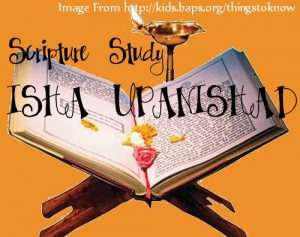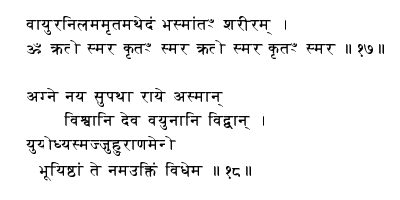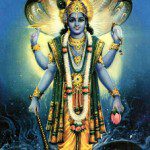We are doing a scripture study together: reading along through some scriptures and discussing the passages. I’ve started with the Isha Upanishad. Today we are reading the last two verses and finishing the Isha. Starting next week, scripture reading will be moving to my new sister blog, the White Hindu Premium. This is a subscription-based blog that will allow you access to more in-depth posts, materials, advice, and video chats with me. Check out the intro! We will be starting on The Bhagavad Gita on Monday.
Here are a few different translations of verses 17 and 18 of the Isha Upanishad…
May my life merge in the Immortal
When my body is reduced to ashes.
O mind, meditate on the eternal Brahman.
Remember the deeds of the past.
Remember, O mind, remember.
O god of fire, lead us by the good path
To eternal joy. You know all our deeds.
Deliver us from evil, we who bow
And pray again and again. –Easwaran Translation
The Breath of things is an immortal Life, but of this body ashes are the end. OM! O Will, remember; that which was done remember! O Will, remember, that which was done remember. O god Agni, knowing all things that are manifested, lead us by the good path to the felicity; remove from us the devious attraction of sin. To thee the most complete speech of submission we would dispose. –Kireet Joshi Archives
17. Breath to air, and to the immortal! Then this my body ends in ashes. Om! Mind, remember! Remember thy deeds! Mind, remember! Remember thy deeds! 18. Agni, lead us on to wealth (beatitude) by a good path, thou, O God, who knowest all things! – Sacred-Texts.com
17 Now may my breath return to the all—pervading, immortal Prana! May this body be burnt to ashes! Om. O mind, remember, remember all that I have done. 18 O Fire, lead us by the good path for the enjoyment of the fruit of our action. You know, O god, all our deeds. Destroy our sin of deceit. We offer, by words, our salutations to you. –http://www.bharatadesam.com/spiritual/upanishads/isa_upanishad.php
Sri Sri points out that calling on Agni, the God of fire, shows that we are burning away our impurities with this prayer.
Max Muller (one of the classic translators) says this Upanishad as a whole is deceptively simple while it is actually the most difficult to properly understand. He believes that it is telling us that good works alone are useless without also surrender to God.
Kireet Joshi likens this to the awakening of the soul. The soul is in darkness until Agni, the fire, lights up to reveal the soul’s true nature. “Even if this body gets reduced to ashes yet the Life force remains immortal… Each one of us is Agni.” Verse 18, he says, is the prayer you need to light the fire within.
My Take
I think it is very interesting to see in this very ancient text, a call on a personal God. There is an intimate relationship here between soul and God.
The “remember” also stands out to me. What is it that this person is begging to remember? Perhaps an experience of union with the divine that he longs to hold onto? Or he wants to remember his past so that he can build towards a future free from karmic debt.
The body is dismissed completely here. It burns away, returns to the earth as nothing more than dust. But our path continues. The body is destroyed, but the author wants to remember what he has experienced and what he has done as he goes into the next embodiment. He calls on God to guide him through the next stage.
Verse 18
What do you think?
What is the Isha Upanishad? There are hundreds of Upanishads, but ten are considered principle texts, the most important ones. This one was probably written between 1200 and 500 BCE. The word translates to “sitting down near,” which refers to a student sitting at the feet of a teacher. Other Parts Of This Series:













